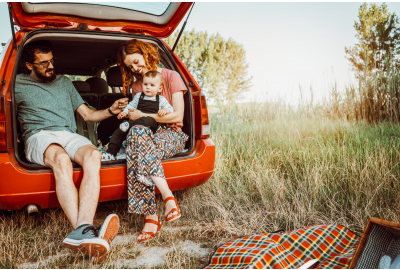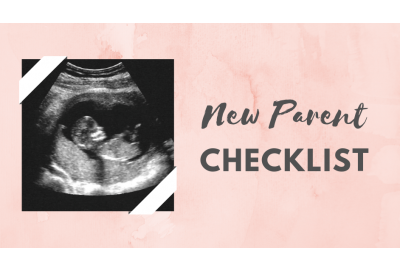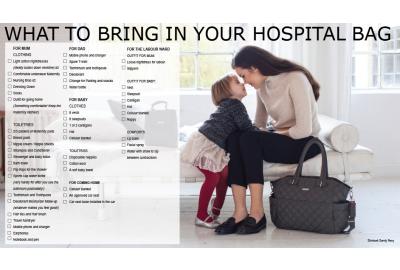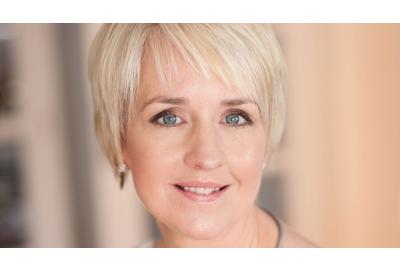Travelling With Newborns and Toddlers: Your Essential Guide
Now that we are heading into the summer months, many of us will be thinking about planning a getaway either locally or further afield. Travelling as a non-parent can be a stressful enough experience, but with the added pressure of a newborn or toddler, the entire thing can become overwhelming.
Although however daunting as this may be, the memories made definitely outweigh any reservations you may have. At Bella Baby, we are passionate about helping you make special moments with your family, so that’s why we’ve put together this comprehensive guide to travelling with newborn babies and toddlers.
Things to consider
Before you start planning your perfect family vacation, there are a few things you must consider first. The most common question new parents ask themselves is, “how soon can you travel with your newborn baby?”
The answer to this is pretty much straight away, however, some doctors recommend waiting at least a few weeks, so your baby can develop more of an immune system. This could be anywhere from one month old for full-term infants, though most doctors recommend anywhere between three months and six months. If your newborn was born prematurely or has any heart or lung problems, it is recommended that you seek doctors advice before travelling, especially on aeroplanes.
Secondly, you must consider the environment you are travelling to, and if it is suitable for a newborn or toddler. Will your child be able to sleep peacefully without being disturbed? Will it be too hot or too cold for your baby? Is the environment safe for a baby, and baby-proofed for a toddler?
Furthermore, travelling with children that have autism can come with its own set of challenges that are worth considering. The changes in routine, unpredictability, crowds, new noises and sights can all make the experience difficult for people on the spectrum and their families. Due to this, it’s wise to consider the best way to travel for you and your family.
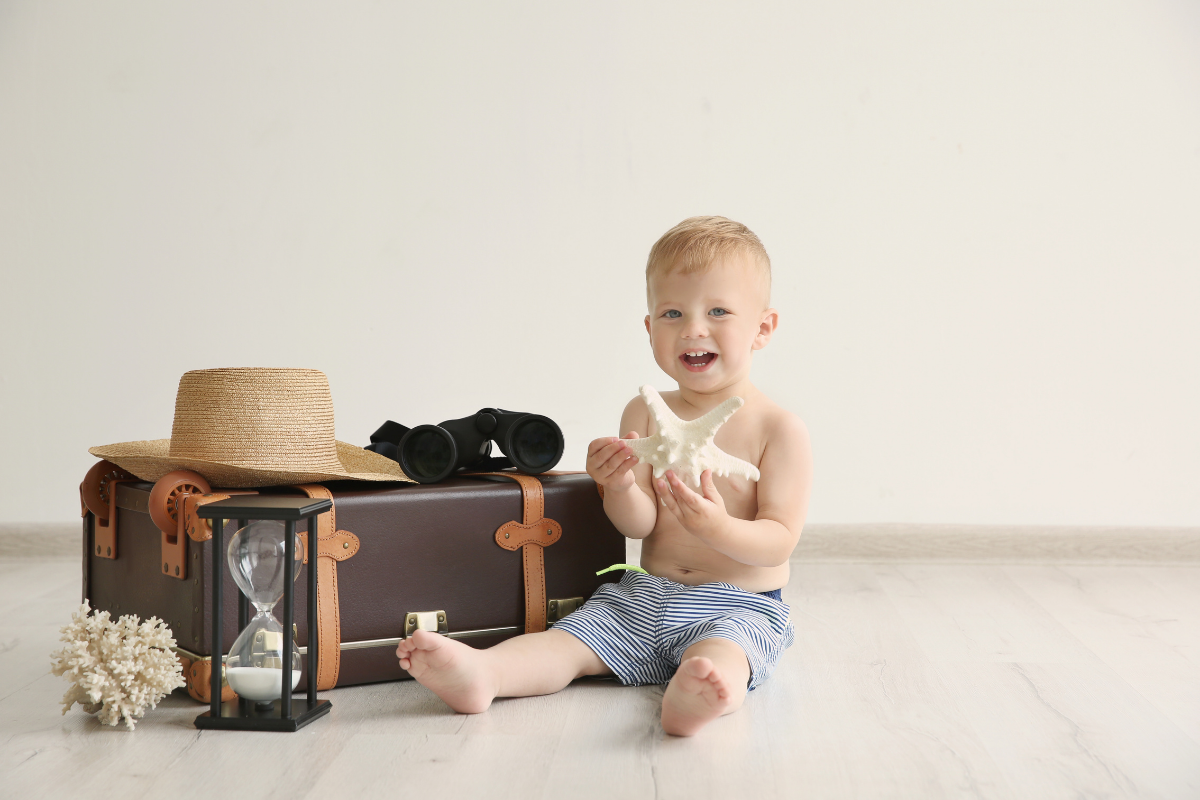
Choosing your location
The biggest change when travelling with your newborn or toddler is finding a location that is child-friendly. You will now have to consider things you’ve never thought of before, along with finding a place that meets all of your families needs.
First of all, you need to decide if you are travelling within the UK or further afield. Staycations have become increasingly popular for people within the last year, especially those with young families. For your first family vacation, this is a great option as you can travel as near or as far away from home as you wish.
The UK is saturated with fantastic, child-friendly places to stay including cottages, hotels, caravan parks and Air BnB’s.
However, if you fancy a change of scenery and culture, international travel may be for you. When flying with a young child there are some things you must know. For example, some airlines may make you buy a separate ticket for your child, and others may offer pre-boarding advantages if you are travelling with a baby. Therefore, it’s worth weighing up all of your options before buying a ticket.
It’s important to remember that your baby will need its own passport and some countries even require a visa. Furthermore, it’s a good idea to sort travel insurance for the entire family, along with a European Health Insurance Card (EHIC) if you are travelling to Europe.
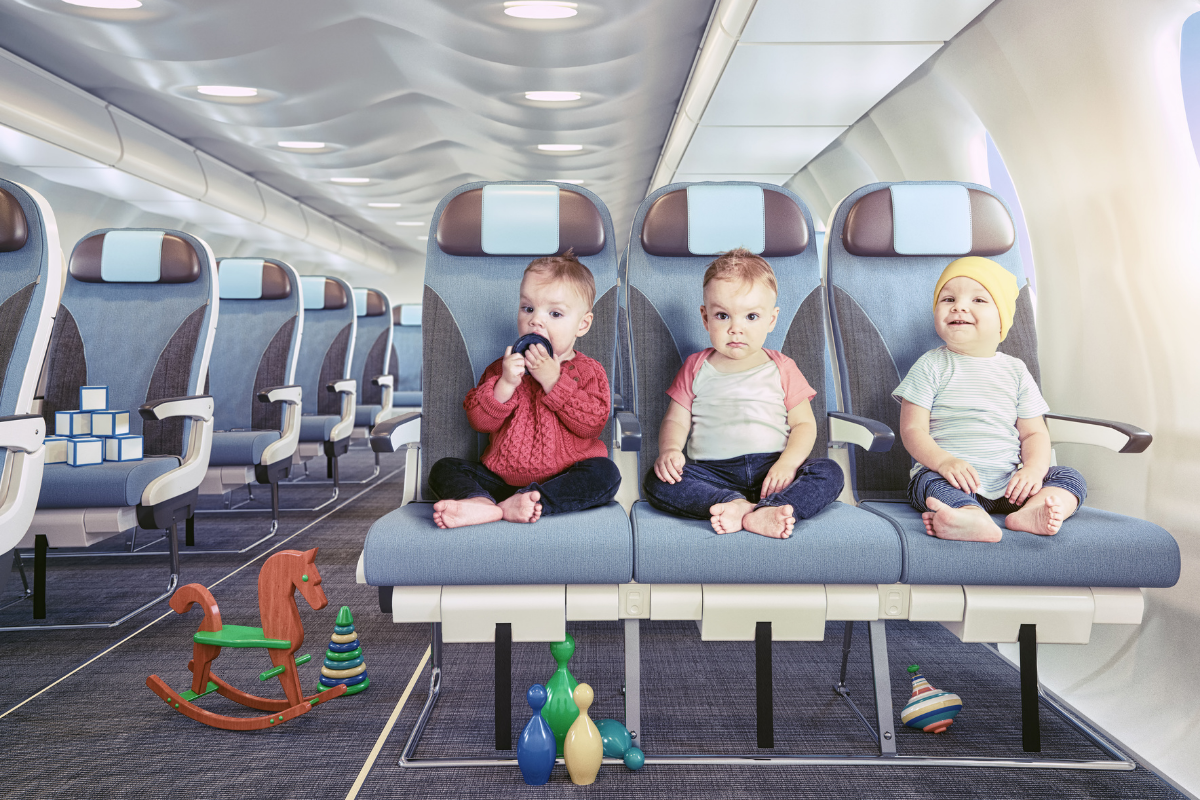
What to pack
Travelling with a newborn or toddler means additional packing. This can be a tricky one, as you may be tempted to pack everything including the kitchen sink for safe measures. However, this is not practical and maybe a very expensive solution.
Instead, make a list of everything you may need then prioritise what you will need most. It’s also worth thinking about what facilities your holiday home will already have or what you can pick up once you reach your destination.
We’ve recommended packing the following with you if they are not already provided;
- Travel cot and sheets
- Blackout blinds
- Pushchair and car seat
- Umbrella or sun canopy
- Baby changing bag
- Plug-in baby monitor
- Night-light
- Universal bath plug
- Toys and books
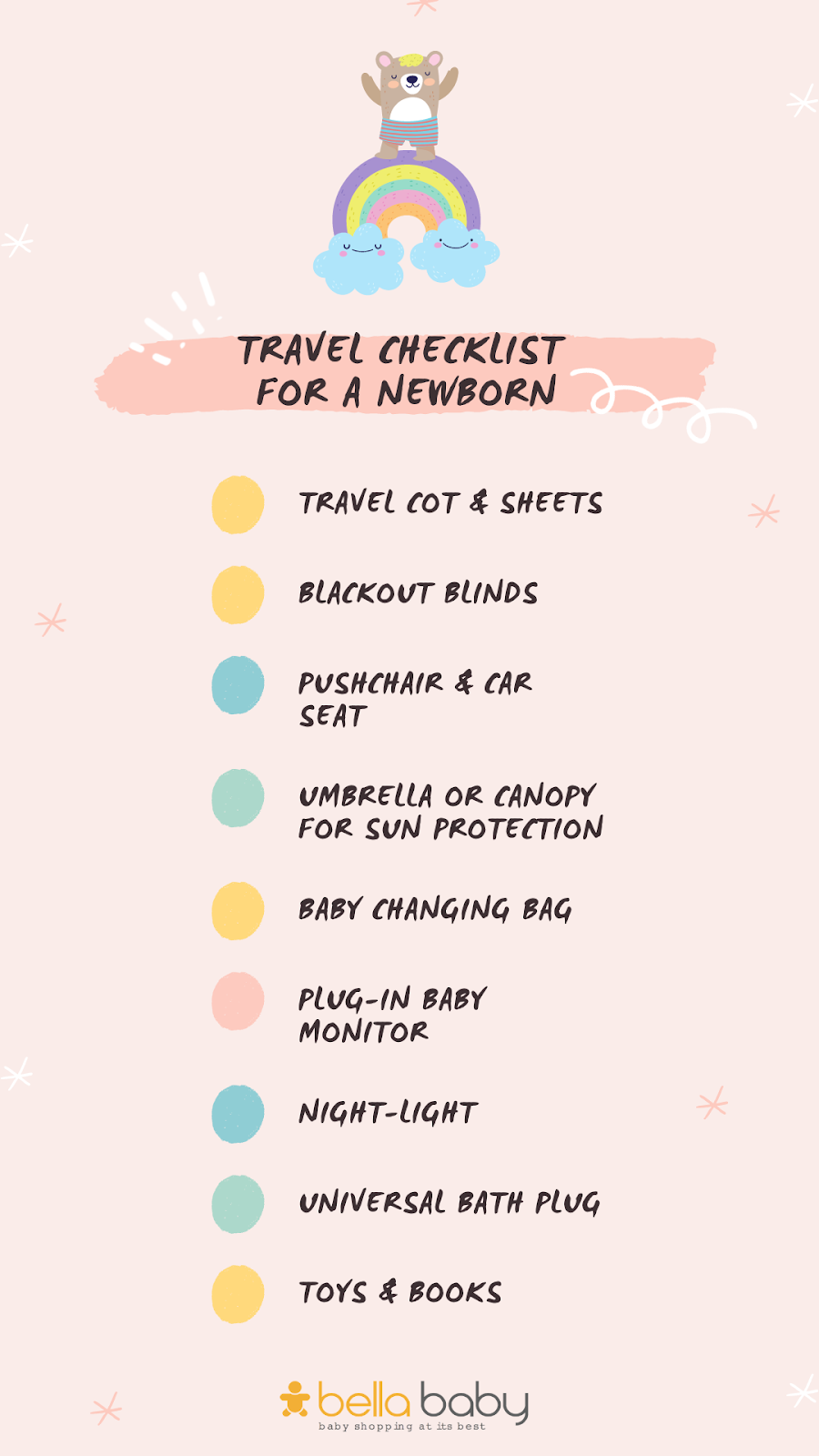
Feeding, sleeping and changing
When on holidays with your newborn or toddler, things like feeding, sleeping and changing may become more of a challenge. Preparation is key here, so it’s a good idea to have a rough idea of how you are going to do these things once you reach your destination.
Feeding
If you are breastfeeding, the good news is that your routine shouldn’t be any different. However, if you wish you can express your milk ahead of time, and store it in a bottle for when you need it. This means that both you and your partner can share some of the feeding duties.
If you are formula-feeding, there are many handy travel solutions that will help you and your baby. You can buy disposable bottles or cartons, and the good news is that these don’t count towards any liquid requirements some airports may have. However, these can take up quite a lot of space, and it may be just as easy to pack all of the equipment needed for preparing food as you go.
Finally, if your baby has moved on to solid foods there are also a lot of pre-made snacks for them to enjoy whilst travelling. If you are bringing some of these with you, or are even planning on making some yourself, it’s a good idea to chose foods that aren’t too messy or likely to spill. When it comes to packing food for your little one, we always recommend bringing more than you think you will need just in case.
Sleeping
Sleeping schedules and nap times can be some of the most challenging things about travelling with a newborn or toddler. We all rely on a good night’s sleep to be able to function properly, and when that is not possible, the simplest of tasks become a struggle.
If possible, we recommend following your baby’s sleep schedule as close as possible. We know this can be a challenge, especially if there is any time difference, but try to plan naps around the same time each day. When putting your little one down to sleep or nap, it’s a good idea to create a similar environment as you would usually do. Follow the same bedtime routine as you would usually do, and bring some bedsheets from home so your baby can smell a familiar scent.
Changing
Changing your baby whilst travelling can come with some great difficulties. There’s never a convenient time to change your baby in public, but with the added pressures of confined spaces, the entire experience can be quite daunting.
Travelling by car is probably one of the easiest places to change your baby (outside of your home of course). There are usually rest stops every few miles are so and many of these offer baby changing facilities. However, if this is not an option the backseat or boot of your car can do the same job. All you need to do is a travel changing pad, along with all of your usual changing items.
If you find yourself needing to change your newborn or toddler on a flight then the best option is to ask an air hostess for direction. If the onboard toilet facilities do not cater for changing, then find some spare seats, lay down your disposable changing mat and use odour-absorbing bags to clean up.
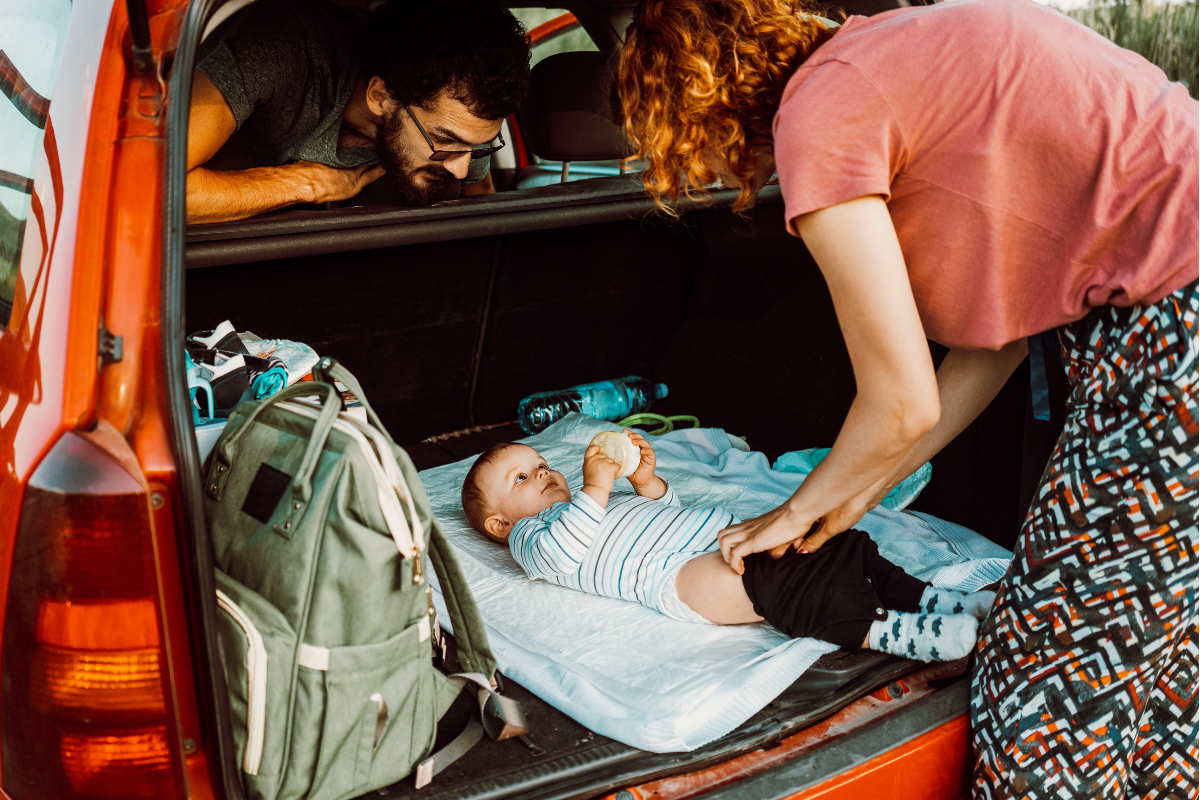
Getting around
One of the biggest debates parents have before travelling with their children is if they should bring their car seat with them. If you are travelling within the UK, in your own car, you are required to provide the correct car seat for each child. However, when travelling abroad the rules around this can vary.
If you are travelling by plane, most airlines will allow you to bring your car seats for free. While this is a great service, carrying this extra luggage can make it more difficult to travel, especially if you are on your own with your baby. Before jetting off on holidays, do some research to see if your hire car company or any other mode of transport you may need to use can supply you with a car seat instead.
Returning to normal
It can take a while for your baby or toddler to get back into the routine they once had prior to travelling. Due to this, it’s important to remain calm and patient until normality is restored. If you have been travelling internationally, the time difference may mean your baby is more tired than usual. Therefore we recommend letting them sleep when they are tired instead of keeping them awake until nap time.
Before you set off on your family vacation, why not take a look at all of the baby travel accessories and essentials we offer!
FAQ's
When is my newborn baby old enough to travel?
It is perfectly safe to travel with your newborn baby, however, some doctors recommend waiting at least a few weeks, so your baby can develop more of an immune system. This could be anywhere from one month old for full-term infants, though most doctors recommend anywhere between three months and six months. If your newborn was born prematurely or has any heart or lung problems, it is recommended that you seek doctors advice before travelling, especially on aeroplanes.
Is it safe to travel long distances with a baby?
Again, it is perfectly safe to travel long distances with your baby or toddler, as long as you abide by the safety precautions. Some car seat manufacturers recommend that young babies and newborns should not be in a car seat for longer than two hours in any 24-hour period.
Where do babies sleep when travelling?
If possible, we recommend bringing a travel cot with you when travelling. Travel cots are ideal for a variety of ages, including newborns and toddlers, however, they can be quite bulky and take up a lot of space.
